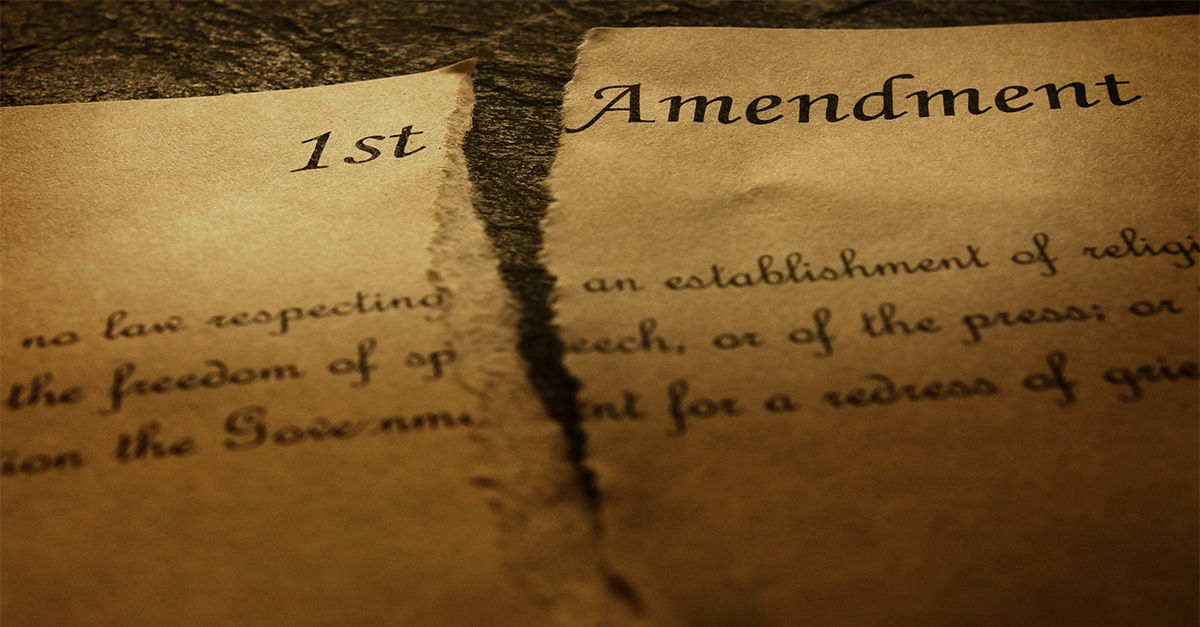


Get a free copy of Parental Rights & Education when you subscribe to our newsletter!

[UPDATE] A federal court has blocked a final rule put in place by the Equal Employment Opportunity Commission (EEOC) that would have required employers and states to grant accommodations for employees getting an abortion.
In a bipartisan move in 2022, Congress passed the Pregnant Workers Fairness Act (PWFA), a law mandating that employers provide accommodations for women who have physical limitations due to pregnancy or childbirth.
The text requires employers to “make reasonable accommodations to the known limitations related to the pregnancy, childbirth, or related medical conditions of a qualified employee, unless such covered entity can demonstrate that the accommodation would impose an undue hardship on the operation of the business of such covered entity.”
Congress specifically defined known limitations as “physical or mental condition related to, affected by, or arising out of pregnancy, childbirth, or related medical conditions.”
The EEOC, which is responsible for enforcing the PWFA, issued a rule that said that an elective abortion is an “example[] of pregnancy, childbirth, or related medical condition” and required employers to provide accommodations for women receiving an abortion.
This includes providing paid leave for a woman to get an abortion.
The states of Louisiana and Mississippi challenged the rule, as did the United States Conference of Catholic Bishops (USCCB), claiming that the EEOC had violated the Administrative Procedures Act, usurped state sovereignty, and violated the First Amendment. The lawsuits were consolidated into one case.
On Monday, the United States District Court for the Western District of Louisiana granted an injunction, blocking the EEOC from enforcing the rule against the plaintiffs.
The order argued that abortion “is a term readily understood by everyone.”
“If Congress had intended to mandate that employers accommodate elective abortions under the PWFA, it would have spoken clearly when enacting the statute, particularly given the enormous social, religious, and political importance of the abortion issue in our nation at this time (and, indeed, over the past 50 years).”
Judge David C. Joseph wrote that in the wake of the Supreme Court’s decision in Dobbs v. Jackson and the polarizing nature of abortion, Congress would have stated whether it meant to include abortion in the PWFA. Instead, Congress explicitly stated its exclusion of abortion.
Bolstering this argument were quotes from sponsors of the PWFA which stated that abortion would not be included. Democratic Sen. Bob Casey responded to concerns about abortion, “I want to say for the record … that under the [PWFA], the [EEOC] could not — could not — issue any regulation that requires abortion leave, nor does the act permit the EEOC to require employers to provide abortions in violation of State law.”
Other members of Congress also confirmed that the legislation was not intended to promote abortion.
As such, Judge Joseph wrote,
“At its core, this is a textbook case of a federal administrative agency exceeding its statutory authority in a way that both usurps the role of Congress and violates authority vested in the states under the principles of federalism. Considering the foregoing, this Court finds a likelihood of success of the merits that EEOC’s textual interpretation of the PWFA to include an abortion accommodation mandate exceeds that agency’s Congressional authorization.”
The injunction will block the EEOC’s enforcement of the rule against the plaintiffs until the merits of the case are decided.
{Published April 28, 2024} Just before it nuked Title IX redefining the biological meaning of sex in schools and college campuses, the Biden administration instituted another radical regulation, this one distorting the meaning of a law that protects pregnant women in order to promote abortion.
The Pregnant Workers Fairness Act (PWFA) which was passed in 2021, requires employers to “provide reasonable accommodations to a qualified employee’s or applicant’s known limitations related to, affected by, or arising out of pregnancy, childbirth, or related medical conditions.”
The Equal Employment Opportunity Commission (EEOC) instead took that reasonable pro-life and pro-family measure and turned it into a Trojan Horse for baby murder.
As seen in the final rule that the EEOC published on April 19 announcing its interpretive guidance on the legislation, the federal agency decided that abortion falls under “Pregnancy, Childbirth, or Related Medical Conditions.”
In short, this new rule means that elective abortion is now considered a “related medical condition” to pregnancy and, as such, businesses could now be forced to “accommodate” women planning to abort their unborn children.
Some have pointed out the irony in using legislation meant to protect pregnant women to end the very pregnancies that the bill is supposed to facilitate.
Rep. Virginia Foxx, R-N.C., for example, stated:
“Adding this controversial provision into the PWFA is wrong. Period. Abortion is not a medical condition related to pregnancy; it is the opposite. Leave it to the Biden administration to think terminating a pregnancy and ending the life of an unborn child addresses the needs of pregnant workers.”
She’s right. Using the PWFA to aid baby murder is a perverse, painful irony.
But what else should we expect from the pro-abortion movement, which cloaks the horrors of abortion within the clinical-sounding euphemism of “reproductive healthcare?”
Those who repeat the lie that “abortion is healthcare” should consider the many health risks that come with the procedure — besides, of course, the murder of an innocent infant. Such risks include physical complications such as infection, blood clots, organ damage, loss of fertility and death, along with mental health complications, including high rates of depression and thoughts of suicide.
Yet this new rule only reinforces this dangerous fiction that abortion somehow provides vital medical care for women while also butchering the spirit of the PWFA.
The new regulation might seem like no big deal. After all, it merely requires that employers step out of the way and allow their female workers to get abortions — some time off, but nothing drastic like forcing Christian business owners to actually fund the ending of an unborn life, right?
But the EEOC’s twisted interpretation of the legislation still violates religious liberty. Forcing an employer to grant “accommodation” — however small — to what Christians rightly view as murder, as the ending of a defenseless human life, is already a step too far.
Sure, the EEOC said it would “consider religious objections to providing abortion accommodations on a case-by-case basis.” But it is hard to believe that Christians with religious objections will find much sympathy under an administration that touts its “achievements” in its perfervid “fight for reproductive freedom.”
And it is easy to imagine Christian employers getting targeted with reputational hit jobs and threats of lawsuits for supposed discrimination against female employees wanting to get an abortion.
Such radical changes would normally be passed by Congress though the legislative process, with all the attendant debate and media spotlight. But it is much easier to have a federal agency change a rule than to get 535 factional members of Congress to agree on something, thereby outflanking the pesky issue of public opinion.
The EEOC itself admitted how divisive the measure is, stating that it “received approximately 54,000 comments…urging the Commission to exclude abortion from the definition of ‘pregnancy, childbirth, or related medical conditions.’ The Commission also received approximately 40,000 comments…supporting the inclusion of abortion in the definition of ‘pregnancy, childbirth, or related medical conditions.’”
Putting aside the fact that the pro-life comments outnumbered the pro-abortion comments, the polarized nature of the public opinions the EEOC received demonstrates that such a divisive issue should not be left in the hands of unelected bureaucrats.
The right to life is sacred and enshrined in the Bible — including unborn life. David rejoices that God “formed my inward parts; [He] knitted me together in my mother’s womb” (Psalm 139:13), and the Prophet Isaiah states that “the LORD, your Redeemer . . . formed you from the womb” (Isaiah 44:24).
The Psalmist also delivers a rebuke for those who pass unjust edicts: “Can wicked rulers be allied with you, those who frame injustice by statute? They band together against the life of the righteous and condemn the innocent to death” (Psalm 94:20-21).
The EEOC’s new regulation is undoubtedly a wicked, unjust statute. It not only enables the murder of precious human life formed in the womb by God but it also forces Christians who deeply hold to such verses to either violate their conscience — or potentially lose their business.
If you like this article and other content that helps you apply a biblical worldview to today’s politics and culture, consider making a donation here.
Christian conservative news and issues that matter. Curated just for you!

